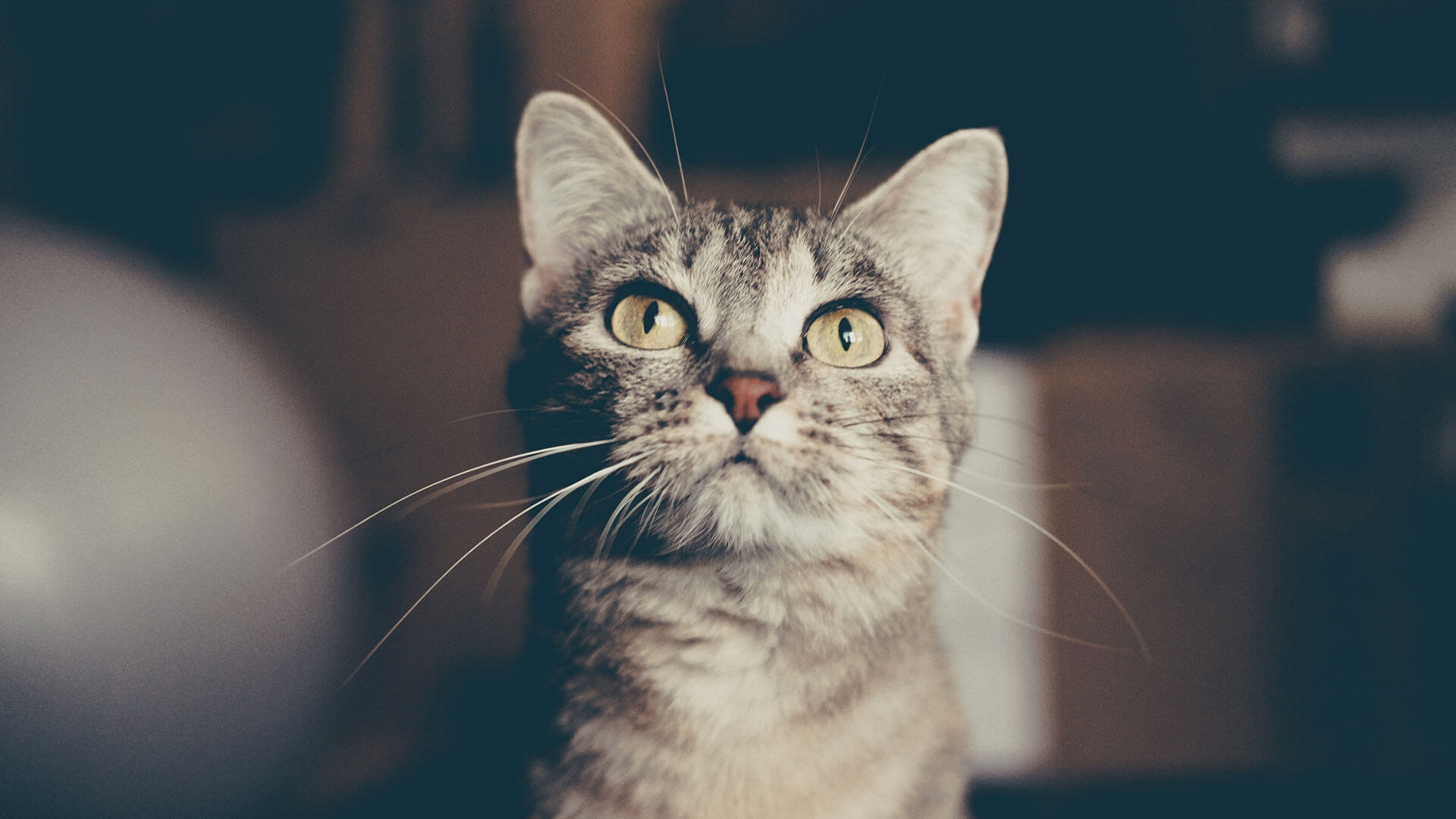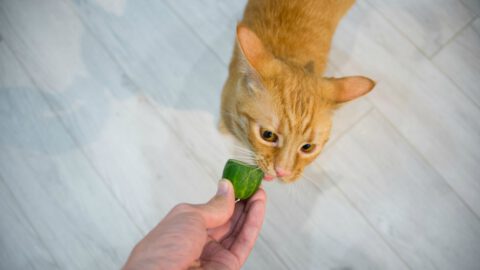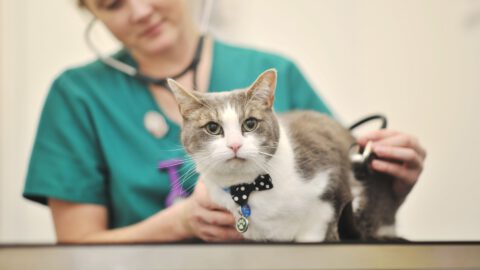Last Updated on March 23, 2020
If you noticed your cat has been grooming more frequently or aggressively, you might be a little concerned. While most cats groom themselves after every meal and several times throughout the day, excessive grooming can lead to hair loss, sores, and infections. This kind of grooming is something known as “Feline Psychogenic Alopecia”.
What Is Feline Psychogenic Alopecia?
As the name implies, Feline Psychogenic Alopecia is a rare psychogenic disease that is believed to be caused primarily by mental and emotional stress. When a cat is suffering from stress, they may begin to groom themselves more frequently. The reason they do this is because the act of grooming releases feel-good endorphins from the brain and works as a calming or coping mechanism for the cat. This is similar to a cat purring when injured or scared, it is a means to cope with anxiety. The issue for cats suffering from FPA is that they will need to groom more and more to get the release and end up injuring the skin or pulling out hair thanks to the abrasive papillae. Some cats may be seen pulling out chunks of hair by their teeth if the skin becomes injured.
Common Symptoms of Feline Psychogenic Alopecia
- Loss of hair in patches or chunks on legs, tail, or belly
- Excessive grooming that seems uncomfortable
- Extra hair shed found around your home
- Irritated skin that is red or inflamed
- Open sores or wounds where blood is present
- Scabs and scarring on the skin
- Restless or uneasiness in your cat’s overall behavior
Skin infections may occur!
If you notice any open wounds, be sure to clean them out with a bit of hydrogen peroxide and use a small amount of virgin coconut oil to prevent a skin infection. Be sure to address this issue with your vet ASAP to prevent any serious skin infections.
What Causes Feline Psychogenic Alopecia?
Several factors can play into the role of a cat developing Feline Psychogenic Alopecia. Most of these are down to mental or emotional factors but stress-induced grooming or hair pulling can also be a result of allergies or physical injury. The most common causes of FPA are stress/anxiety, compulsive behavior (OCD), allergies and skin irritants.
Stress/Anxiety
If you have recently moved, your cat lost a close companion, a new human or animal has been introduced to the household, or your cat is simply bored, this can lease to stress and/or anxiety. This is also common with newly adopted cats or those who have been taken off the streets and put into shelter cages. An overwhelmed cat will often seek to find a release from this pent up anxiety in the form of eating more/less, destructive behavior, oversleeping, or excessive grooming.
Compulsive Behavior (Feline OCD)
Cats can develop OCD similar to that of humans where they compulsively react to boredom or stress in the form of repetitiveness. Excessive grooming, itching skin, and pulling hair are a few noticeable repetitive actions a cat will do when under high levels of stress or in some cases, due to malnutrition.
Allergies & Skin Irritants
An allergic reaction to certain foods, chemicals in your home, flea bites, or medications can result in a cat who is excessively grooming or pulling out its own hair. This is the most common cause of Feline Psychogenic Alopecia and often the easiest to treat as the stress is brought on by an outward occurrence and not mental or emotional stress in and of itself.
How to Treat Feline Psychogenic Alopecia
Treating FPA relies heavily on the underlying cause. You will want to rule out any physical causes such as fleas, bacterial/fungus infections, allergies, and medication reactions with your veterinarian first. If the cause is not clear, it is likely down to mental or emotional stress. You will have to find any stressors and remove them from your cat’s environment. Ensuring they are getting enough attention and interaction from you so they are not bored or lonely will significantly improve their mental health as a result, the FPA should clear up on its own. If you do not notice any changes after 2 weeks, you can speak to your veterinarian about prescribing something to assist in the emotional and physical healing of your cat.





Can a cat become stressed if their owner has had a long term injury? Ours is loosing her fur on her tail, hind legs and belly.
In June I broke my upper arm, had surgery in July and the recovery will take months. I can no longer sleep in our bed (so she can’t get her ritual of her “cat cave”) every night, instead, I am stuck sleeping in my recliner probably through all of Sept. She does not want a “cat cave” in the recliner. It is not the same. She does sit on my recliner through out the day and seldom will go somewhere else to sleep.
Her ritual EVERY night was to come onto our bed, go into her “cat cave”, once she was satisfied that all was as it should be, then she would jump off the bed and go to her cat bed. She has not been able to do this since mid June.
Thanks for your comment, Alyce. Yes, cats are not good with change and will often become stressed out with the smallest of changes. Some cats have a harder time managing their stress and it can result in things like FIC, stomach/digestive issues, behavioral problems, and hair loss/hair-pulling. Just like in humans, stress can cause a wide variety of different issues within their bodies. Are you finding hair clumps around the house? If not, there is a good chance she is pulling out the hair herself and digesting it. I think it is a good idea to have her seen by a vet to rule out any medical causes for the hair loss. If everything seems to be fine, it will likely mean that it is stress-induced.